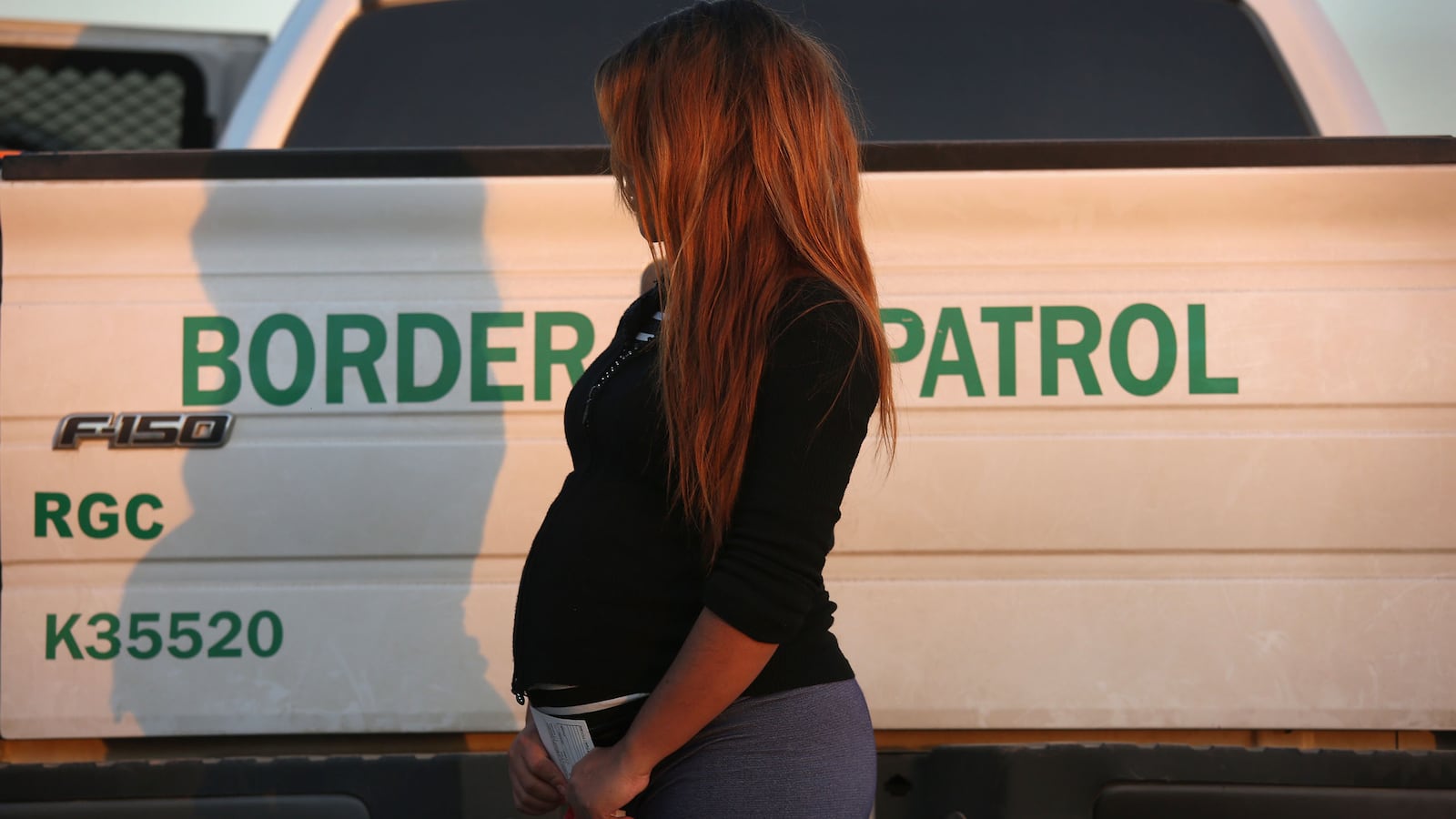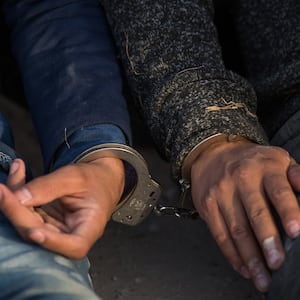Emely, 30, arrived in the United States from Mexico a decade ago to work for a few years, raise money for her family, and return home.
Then she met her husband. He’s Mexican, too, but has legal working papers and is protected by DACA. That’s not the case with Emely.
This past summer, Emely gave birth to her firstborn, a son. But like a growing number of foreign-born Hispanic women, health complications forced her to give birth prematurely at 36 weeks. Dangerously high blood pressure led to preeclampsia, a condition that can be fatal to mother and child.
She and her baby are now healthy, but her position as an undocumented immigrant in Trump’s America is a daily added stressor to an already difficult life. And she’s not alone.
According to a recent report from Harvard University’s Chan School of Public Health, “Severe stressors can induce preterm birth, with such stressors including social and economic threats, interpersonal violence, hate crimes, and severe sociopolitical stressors,” like a candidate’s call for a border wall with Mexico to keep out “rapists” who bring drugs and crime into the country, or a president’s executive order to ban immigrants from Muslim countries.
The study collected birth certificates from the New York City Department of Health and Mental Hygiene, comparing the period before the U.S. presidential nomination (between September 1, 2015 through July 31, 2016) to the post-inauguration period (January 1, 2017 through August 31, 2017).
The researchers found a stunning rise in pre-term births among foreign born women from Mexico and Central America in that year, going from 7.3 percent to 8.4 percent. Women from travel ban countries in North Africa or the Middle East also experienced a rise in preterm births, although the effects were less significant due to a smaller statistical pool. Tellingly, rates for U.S. born non-Hispanic white women remained about the same.
“We had a clear objective which was mindful of the kinds of targeting and hateful rhetoric that started happening with the phases of the presidential campaign,” Nancy Krieger, a professor of epidemiology and lead researcher on the report, told The Daily Beast.
Premature babies face not only a higher risk of infant mortality but also a host of other ailments that could plague them for the rest of their lives. In the relatively small window of time that the study focuses on, it’s unlikely that other known determinants, like economic level, education level, and smoking rates would have changed significantly enough to cause the premature births.
Meanwhile the national rhetoric and new policies coming out of the White House can be clearly tracked through the media during this period of time.
“What’s really worrisome is that, yes, this is affecting the mothers, but it’s also affecting the next generation,” said Krieger. “It means that the insults that are being experienced now are going to set up continued health problems going forward at a higher rate.”
“This is a community under siege,” Julia Andino-Montes, an adjunct lecturer at the CUNY Center for Worker Education who specializes in maternal mental health and grief recovery work. “These women are in fear of deportation not only for themselves, but for their partners. They have kids that are U.S. citizens, so they worry about who will take care of their children if they get deported.”
Fear can impact the mother and child’s bodies, but it also makes women fearful of seeking out health services. Andino-Montes used to run a maternal depression support group for Hispanic women in NYC out of the Public Health Solutions Corona office. “When Trump came into office and he signed the immigration executive order, the number of women in attendance decreased substantially,” she said. “From 10 to 15 women weekly, I’d now have two. They were hiding.”
Melissa Maldonado is a community-based case manager for pregnant women at Public Health Solutions (PHS), the largest public health nonprofit in New York. She also noticed a drop in mothers seeking services, specifically the federal food and nutrition service, Women, Infants, Children (WIC), that many low-income and undocumented families rely on. According to PHS’s findings, WIC participants dropped off significantly in November 2016, January 2017, April 2017, and May 2018. These drop offs may correlate with notable news events, like the immigration ban in January 2017 or Trump’s decision to end the temporary protected status for Hondurans in May 2018, leaving around 57,000 people vulnerable to deportation. Average WIC drop off rates are usually about 105 families monthly.
But during these fraught months, the average number of families dropping out has been around 400 to 650.
“When it comes to perinatal health, when you get treatment is very important,” said Maldonado. “The earlier you get prenatal care, the likelihood of you having a preterm birth is going to be lower.”
Emely is still using WIC to feed her child, but she is hesitant to access other services for fear that it will hurt her child’s chances of receiving loans for an education in the U.S. in the future.
This fear is based on rumors, but it’s not without a basis in truth. Recently the Department of Homeland Security proposed changes to the ‘public charge’ rule, a longstanding policy that could deny immigrants visas if that person is likely to become dependent on public benefits. The new proposal now takes into account things like if a person has ever received Medicaid coverage, food stamps, or housing assistance. According to Maldonado, many undocumented, and even legal immigrants, are even being advised by lawyers to not seek out any services as this may adversely affect their chances of citizenship.
Legal status doesn’t mean what it used to in the Trump era, and Emely knows that. She said she’s been hearing about immigration raids around the country and worries for her husband. “I know New York is a sanctuary state, but if there’s a raid, even if my husband is in DACA and has his working papers, they don’t respect those during raids,” she said. Her child’s status as a U.S. citizen is also a cause for concern in light of Trump’s outspoken desires to end birthright citizenship.
“What I hear Trump saying on the news, all these bad comments about us and wanting to block citizenship for kids—that’s worrisome because the kids have nothing to do with it. This is a problem for the parents and the kids have nothing to do with it,” she said.
The social and political stressors don’t appear to be letting up any time soon, and Krieger said that they may continue to add to preterm births. But despite an uncertain future, Emely’s advice to mothers facing similar situations is to stay positive. “What’s most important is the baby’s well-being,” she said. “For the sake of the baby, try to stay calm.”







